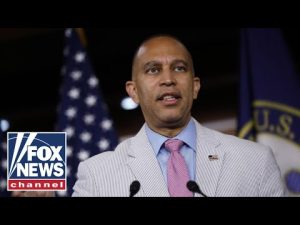In a recent development that could be described as an intersection of irony and justice, President Trump’s administration appears to have reached a groundbreaking deal with Harvard University. It seems that after a prolonged legal battle, a significant investment of $500 million is heading towards trade schools, a cause that many argue is long overdue. It’s funny how some of the most elite institutions, which have historically been bastions of liberal ideology, are now choosing to participate in funding practical education. Perhaps they’ve realized that not everyone requires a degree in interpretive dance or postmodern philosophy to succeed.
The President, in his signature approach, is asking other universities to join the bandwagon and uphold the administration’s higher education policies. If they refuse, they might face the risk of losing federal funding. For institutions that enjoy sending their graduates off with hefty student loans and job offers in poetry criticism, this might be a wake-up call. The administration’s intent is clear: try to bring back some sanity and merit to the education system, an oasis of common sense that seems to have dried up in the recent ideological desert.
Trump’s approach here could be likened to a parent asking a rebellious teenager to follow the house rules or face the consequences. Except here, the teenager is a pompous university that likes to think its social justice seminars are the pinnacle of education. And let’s not forget about the rumored hiring of a drag queen at Harvard, which might be an interesting twist to the tale, potentially adding another layer of “educational” content.
Elsewhere, certain universities, like Vanderbilt, appear to be treading carefully, expressing a willingness to review and possibly comply with the administration’s principles for academic excellence. It’s as if they’re peeking through their curtains, gauging the weather of change before deciding whether to put on a raincoat or bask in the sunshine of federal aid. The focus seems to be on reintroducing standardized testing and encouraging a more politically balanced student body—ideas that should not sound revolutionary but somehow do in today’s climate.
Meanwhile, in the grand theater that is New York City politics, a mayoral nominee by the name of Zohran Mamdani is stirring the pot by suggesting cuts to funding for gifted and talented kindergarteners. The plot thickens when you learn that Mamdani himself enjoyed an elite education, presumably without worrying about the cost of crayons. His actions smack of the usual “Do as I say, not as I do” approach we’ve come to expect from those who enjoy champagne socialism, or perhaps more appropriately, caviar communism. While Mamdani basks in the endorsement of teachers’ unions, some educators aren’t too thrilled, finding themselves increasingly alienated from decisions that seem more about politics than pupil-centric progress.







